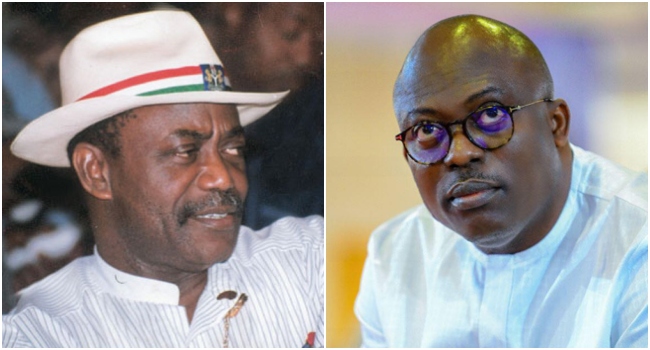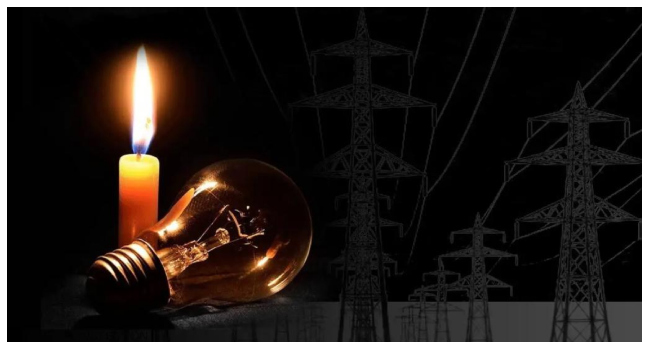The frequent appearance of queues of desperate motorists at filling stations in search of Premium Motor Spirit, otherwise known as petrol, could affect the Christmas and New Year festivities, oil marketers stated on Friday.
It was also gathered that oil marketers were now free to sell petrol at any rate as the Federal Government was no more restraining them from dispensing the commodity at a regulated price.
Fuel queues have continued to appear and disappear since January this year despite the hike in the cost of the commodity by oil marketers without any approval from the Federal Government or sanctions imposed on them.
Rather than speak on the matter, the Federal Government, through its Nigeria Midstream and Downstream Petroleum Regulatory Authority, chose to remain mute.
Officials of the agency neither answered calls, nor replied to text messages sent to their mobile phones on issues of the scarcity of petrol nationwide.
Similarly, the sole importer of PMS into the country, the Nigerian National Petroleum Company Limited, has refused to make any comment on the development.
The NMDPRA, in its report on product sufficiency on Thursday, however, claimed that there was 33.17-day sufficiency of PMS in the country as of November 24, 2022. It also stated that about 2.1 billion litres of petrol was in stock despite the widespread queues nationwide.
But oil marketers countered the government as they argued that there had been concerns around logistics and the supply of products by the national oil company and sole importer.
They also stated that some new charges had been introduced in the downstream oil sector, which had given rise to a hike in the ex-depot price of petrol, adding that all these concerns could further make the current fuel queues to linger beyond December.
“Recently, there have been a lot of charges that marketers pay. There are some charges that the NNPC adds to the pump price, but recently we were told to be prepared to bear freight charges and others,” a major marketer, who pleaded not to be named due to lack of authorisation, stated.
The official added, “Also, pipeline charges that used to be 50 kobo before, are now N1 per litre. Now, these charges force depot owners to increase their ex-depot rates as against the one proposed by the NNPC.
“These and more concerns have led to the crisis in the downstream sector and it may stretch till December or even beyond if nothing tangible is done to address the challenges.”
Asked if the government was no more concerned about the pump price of petrol, the marketer replied, “Nobody cares about how much you sell now. That is why you cannot see the NNPC ex-depot prices to be the same in all the depots.
“There are some changes in rates now, which the NNPC cannot accommodate and they have to push it to marketers to absorb. This is why you see people sell at different rates.”
The National Public Relations Officer of the Independent Petroleum Marketers Association of Nigeria, Chief Ukadike Chinedu, said the scarcity of foreign exchange was also a setback to petroleum products supply.
He said, “There was a time you interviewed me some months ago, and I told you that fuel would sell for N200 per litre. You were really not comfortable with that statement.
“After that publication, many stakeholders called you to react to it. Some of them also called me to say why did I say fuel would be sold at that price? But I was only discussing based on the indices of the industry at that time.
“As a PRO of IPMAN in Nigeria, I can read the policies of the government towards the distribution of products in the downstream oil sector. You look at the exchange rate of the dollar to the naira, some foreign interruptions and the price of diesel.
“All these are factors that definitely affect petroleum products’ prices since we are not producing refined products in Nigeria. We cannot sustain the importation of petrol.
“Otherwise, we will continue to see ghost queues every month and this may continue till the end of this year. The major solution now is to speed up the repairs of our refineries. However, we are meeting and looking for quick interventions.”
On his part, the Deputy National President, IPMAN, Zarma Mustapha, stated that the queues would likely continue till December, but noted that efforts were on to address the hitches.
He said, “The on and off queues are due to issues of logistics in terms of supply of the commodity to the retail outlets from either the mother vessel to the private depot owners, and from there to independent and major marketers’ stations.
“There are a series of logistics issues as regards the supply chain. But the government and stakeholders are engaging in order to get a solution to these issues. However, we believe that this will be addressed, though it may drag beyond December.”
Also speaking, the Secretary, Abuja-Suleja IPMAN, Mohammed Shuaibu, stated that the current challenges of poor distribution and supply shortage of petrol might lead to widespread queues for PMS during the festive period in December.
“Our worry as marketers is that the festive month is at hand and if nothing is done quickly to address the current concerns around supply, I am afraid that it will escalate during the festivities, because it has started,” he stated.
Shuaibu described the situation as very precarious, stressing that it was the government that had the capacity to address it through the NNPC.
“We are in a very precarious situation and we pray it does not escalate beyond this. But then, the government has to wake up to its duties, because as you know, none of the four refineries is productive. They are more or less obsolete,” he stated.
Shuaibu called on the government to act fast in getting the refineries functional, describing this as the “most sensible solution at this moment.”
Credit: Punch







